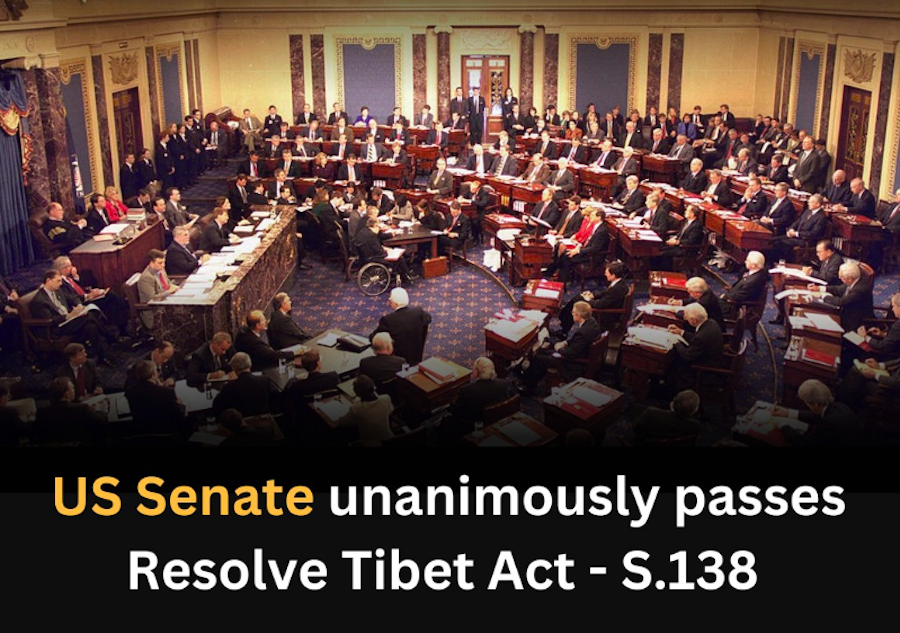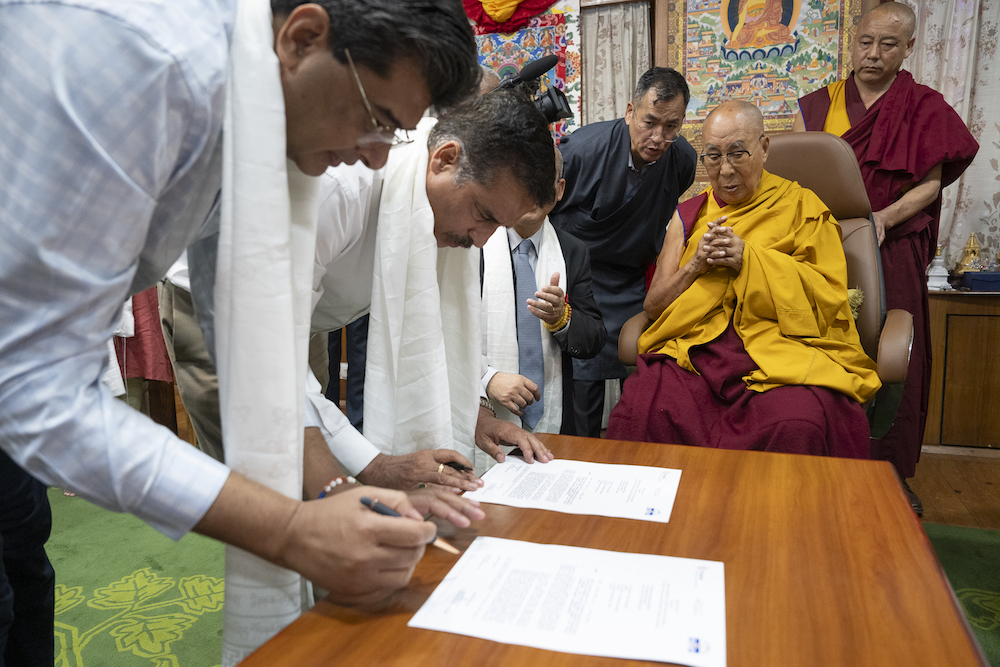LLOYD STEFFEN
”He urges people to rethink what they want and how to get what they want, and with so much misery and unhappiness in the world, the way to happiness will not come from doing things as we are used to doing them.”
Tenzin Gyatso, the 14th Dalai Lama, visits the Lehigh Valley this week. Why all the excitement? Why is the Dalai Lama so important?
One thing everyone knows about the Dalai Lama is that he is famous. His face and cheery smile are known the world over. He is, in fact, an iconic figure whose status as a bona fide celebrity was confirmed when a Dalai Lama ”paper doll” cut-out book was published not long ago. But why does he command so much attention? Does he not come out of a religious tradition — Tibetan Buddhism — unfamiliar to many Americans? And the conflict between Tibet and China that has put the Dalai Lama in the news lately-does that not involve a regional history over issues that for most of us are simply obscure? Why is the Dalai Lama thought to be important? Fair question.
To answer the question requires just a little ”Who’s Who in the World” background. The title Dalai Lama is a Mongolian and Tibetan hybrid term that literally means ”ocean teacher.” The Dalai Lama is believed by Tibetan Buddhists to be the reincarnation of the Buddha (or bodhisattva) of Compassion. He is believed to possess a wisdom as deep as the ocean, and the title identifies its holder as the highest spiritual authority in Tibetan Buddhism. The current Dalai Lama, born in 1935, was recognized as a living Buddha when only three years old. He began monastic training at the age of six, completed doctoral studies in Buddhist philosophy at the age of 25, and was acknowledged as the spiritual leader of the Tibetan people. In 1950, when only 15 years old, he was named head of the Tibetan state.
After the success of the communist revolution in China, Mao Zedong tried to unite Tibet with the People’s Republic of China, the ostensible purpose being to modernize Tibet. Chinese military forces invaded Tibet, and the incursion was met with resistance and bloodshed. With his life threatened and with efforts to bring peace to his homeland having failed, the Dalai Lama was forced into exile. In 1959 he crossed the Himalayas and took up residence in Dharmasala, India, where he has lived ever since. He is known the world over today for his teachings and writings on spirituality, ethics, human rights and nonviolence, and the numerous awards he has received in recognition of his efforts to promote justice and resolve the Tibetan situation nonviolently include the 1989 Nobel Peace Prize.
There have been many spiritual leaders, many different heads of state, even other exiled heads of state, and quite a few Nobel Peace Prize winners — so why is this man, who describes himself always as ”a simple monk,” important? Let me suggest three reasons.
First of all, the Dalai is an extraordinary teacher and a gifted communicator. His fame derives from his efforts to stay in constant communication. He is a New York Times best selling author many times over, able to reach wide audiences; he is a lecturer to hundreds of thousands of people across the globe — a true global citizen; and he is the subject of many films and documentaries, including Martin Scorsese’s bio-pic, ”Kundun.” The Dalai Lama has succeeded in translating central ideas from his Buddhist tradition to people in a way — and through all kinds of media — that speaks to their common spiritual needs and longings, regardless of whether they are Buddhist or even religious at all. But he has also taught Buddhism along the way. Much of what many people know about Buddhism comes from their encounter with the Dalai Lama, who has connected with people as only great teachers can, embodying in his life and words a message that speaks to the great questions about life and its meaning.
Second, the Dalai Lama is important because of the specifics of his message. The Dalai Lama reminds us that we are all in the same boat, that suffering is our common condition. He humbly suggests that we are responsible for one another, and that geographic boundaries should be no impediment to our sense of responsibility. We are all connected. And we all want the same thing out of life — we want happiness. His teaching, then, is designed to illuminate the pathways that might get us to happiness. Learn patience. Show tolerance. Seek wisdom. Forgive. Make love your aim as well as your mode of operation. Offer compassion and help those who are in need. Calm yourselves and seek peace within — meditate. Bring peace to the world through a life of care and empathy. Shun violence and hatred. Channel anger and overcome fear. Build your life around these values, rejecting the excesses of materialism and the temptations to resolve conflict by resorting to violence. Make kindness your ethic. You cannot be too kind.
These are messages that can be found many places, including the religion of Christianity. What is unusual about the Dalai Lama as teacher is that he has extracted these messages from theological trappings and offered them as wise counsel and living directives to those seeking spiritual enlightenment. This is radical business and the kind of teaching that many Christians find difficult, since in many versions of Christianity the message about what is required to do is subordinated to requirements about belief. The Dalai Lama dissociates the two– he focuses on the doing, on the requirements of peaceful living and wisdom seeking. He does not force his Tibetan beliefs on those outside his tradition — when people tell him they don’t accept reincarnation he laughs and says, ”How could you? How is that a part of your life?”
And this leads to a third consideration. The Dalai Lama is important because the challenge of his message is this: ”Stop doing business as usual.” The idea that we can find peace through force of arms or happiness through acquisition is illusory. He urges people to rethink what they want and how to get what they want, and with so much misery and unhappiness in the world, the way to happiness will not come from doing things as we are used to doing them. Reprioritize and revalue, he seems to be saying. Emphasize dialogue, not confrontation. Think about cooperation rather than competition. Think about advancing the interests of others as much as you do advancing your own. Make every encounter with another person the greeting of a new friend. And when you are told this is impractical, remind your skeptic that if we do not reshift to an alternative set of values and refocus our concern to include all others, even the well-being of the planet itself, we imperil our very existence.
The Dalai Lama relates this message from his Buddhist sources — it is not an alien message for me as a Christian. What I celebrate is that the Dalai Lama has found a way to make this message heard today, even if it is through massive media exposure and paper doll cut out books. The message goes to the hope for human happiness. The message is that business as usual is a well doomed to run dry, and alternative values, an alternative spirituality, will be required to energize peaceful and meaningful life in the days ahead. The Dalai Lama offers an alternative path away form the present unhappiness; he emphasizes a way of living that challenges what most of us value and how most of us live-and that, for me, is why the Dalai Lama stands in a long line of great spiritual teachers; that for me is why the Dalai Lama is so important.
Lloyd Steffen is professor of religion studies and chaplain at Lehigh University.









